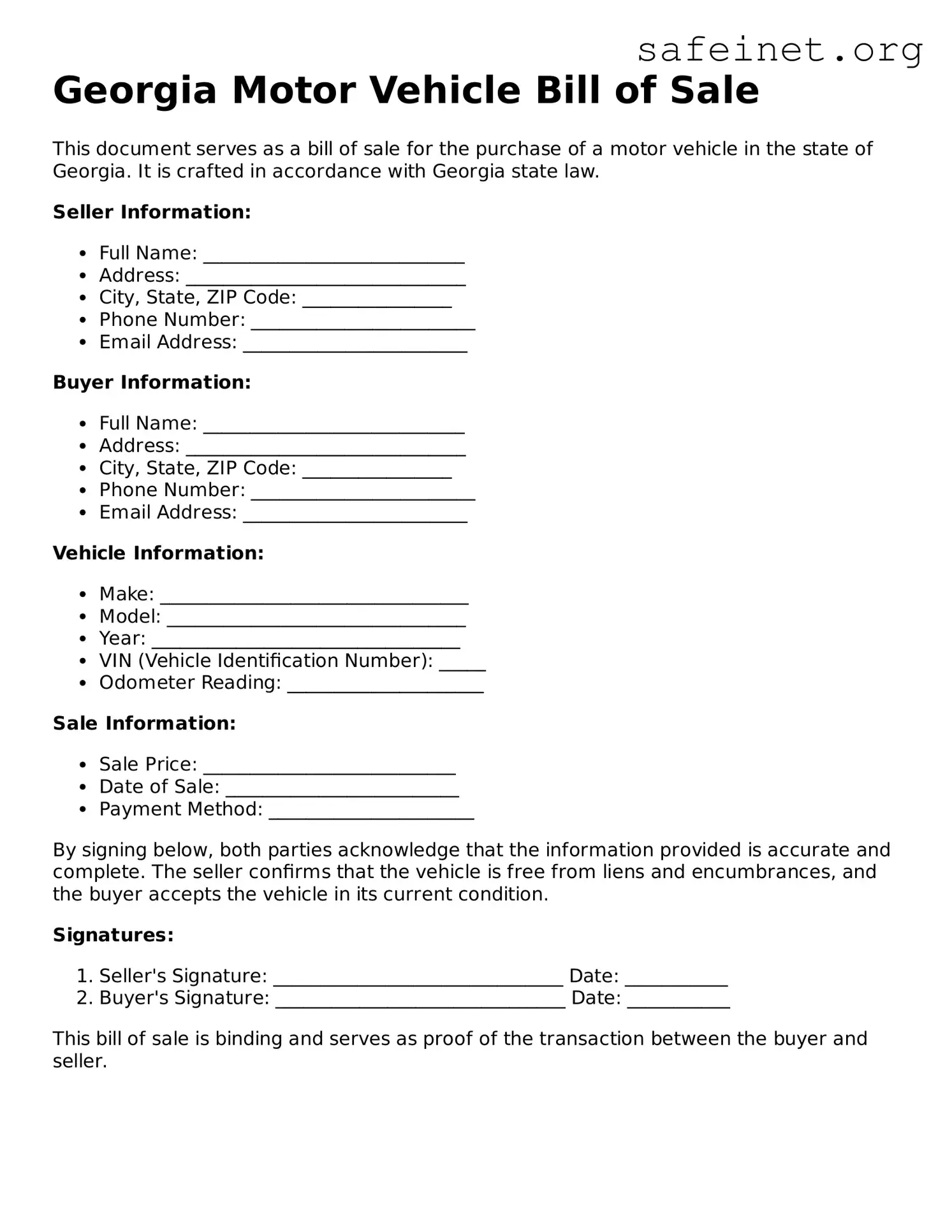What is a Motor Vehicle Bill of Sale in Georgia?
A Motor Vehicle Bill of Sale is a document that serves as a receipt for the sale of a vehicle. It outlines the details of the transaction between the buyer and the seller, including the vehicle's identification number (VIN), make, model, year, sale price, and the names and addresses of both parties. This document is important for both buyers and sellers as it provides legal proof of the transfer of ownership.
Is the Bill of Sale required in Georgia?
While a Bill of Sale is not legally required in every vehicle transaction in Georgia, it is highly recommended. The form helps protect both the seller and the buyer by clearly documenting the terms of the sale. Additionally, it can be requested by the Georgia Department of Revenue when registering a vehicle, making it a useful document for buyers who need to establish ownership.
What information should be included in the Bill of Sale?
To be valid, a Bill of Sale in Georgia should include several key pieces of information. This includes the full names and addresses of the buyer and seller, the vehicle's make, model, year, and VIN, as well as the sale price. It is also beneficial to note the date of the transaction and any additional details such as warranties or conditions that may apply to the sale.
Do I need to have the Bill of Sale notarized?
In Georgia, notarization of the Bill of Sale is not required by law. However, having the document notarized can provide an extra layer of security for both parties. A notary public verifies the identities of the individuals signing the document, making it harder to dispute the transaction later on.
Can I use a Bill of Sale from another state?
Although you may use a Bill of Sale from another state, it is advisable to use a Georgia-specific form to ensure compliance with local regulations. Different states have different requirements for vehicle sales documentation. Using a form tailored to Georgia ensures that all necessary information is captured and reduces the risk of issues during vehicle registration.
How do I obtain a Motor Vehicle Bill of Sale in Georgia?
You can obtain a Motor Vehicle Bill of Sale from several sources. Sample forms are often available online through various legal and government websites. Additionally, local DMV offices may provide a standard form. It is important to ensure that any form used meets the requirements set by the state of Georgia.
What should I do with the Bill of Sale after the transaction?
After the sale is completed, both the buyer and the seller should keep a copy of the Bill of Sale for their records. The buyer needs it to register the vehicle, while the seller may want to keep it as proof of the transaction. It is recommended to store these documents in a safe place, as they may be needed for future reference or in the case of a dispute.
